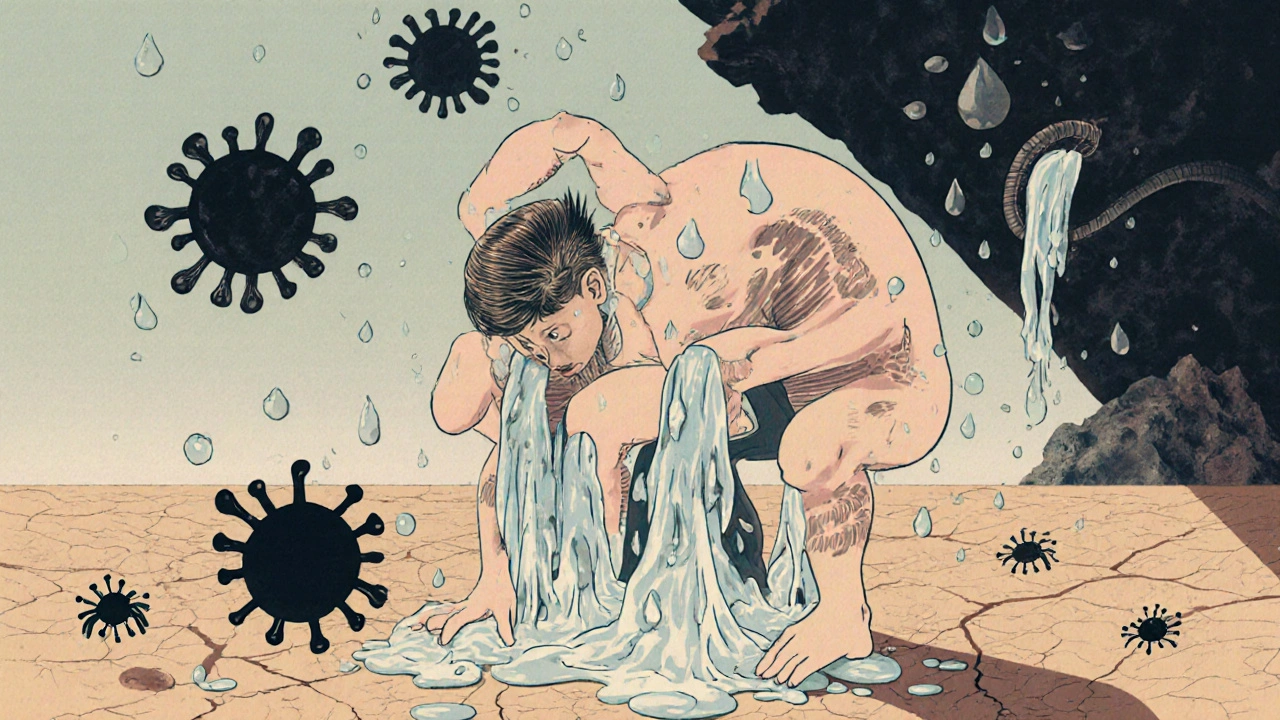Dry Eyes: Causes, Treatments, and What You Can Do Today
When your eyes feel gritty, burn, or water too much, you’re not just tired—you might have dry eyes, a condition where your eyes don’t make enough tears or the tears evaporate too fast. Also known as dry eye syndrome, it’s not just an annoyance—it’s a sign your ocular surface, the outer layer of your eye including the cornea and conjunctiva is struggling to stay protected.
Many people assume dry eyes are just from staring at screens, but the real causes run deeper. Medications like antihistamines, antidepressants, and even blood pressure drugs—some of which we cover in posts about fluid retention, a side effect tied to how the body manages water balance—can reduce tear production. Aging, hormone changes, and autoimmune conditions like Sjögren’s syndrome also play a big role. If you’re on long-term meds or have an autoimmune disorder, your dry eyes might not be random—they could be a side effect you’re missing.
It’s not just about using drops. Your tear film has three layers: oil, water, and mucus. If any one layer fails, your eyes dry out. That’s why some artificial tears don’t work—they only replace water, but you need the oil layer too. Environmental factors like wind, dry air, or air conditioning make it worse. And if you’re taking meds that cause fluid retention, which affects how your body holds or loses water, your tear production might be quietly slipping too.
What works? Simple habits: blink more often, especially when reading or scrolling. Use a humidifier at night. Avoid direct airflow from fans or vents. Warm compresses can unclog the tiny oil glands in your eyelids—something many doctors skip over. If over-the-counter drops don’t help after a few weeks, it’s time to look beyond the bottle. Prescription options, like cyclosporine or lifitegrast, target inflammation, not just symptoms.
And here’s something most people don’t realize: dry eyes can be linked to other chronic conditions. If you’ve got diabetes, kidney disease, or are on long-term steroid therapy, your risk goes up. That’s why posts on diabetic kidney disease, edema in CKD, and steroid replacement aren’t just about organs—they’re connected to your eyes too. Your body’s water balance, immune response, and hormone levels all tie into how your eyes stay moist.
You don’t have to live with burning or blurry vision. The right fix isn’t always the most expensive drop—it’s understanding why your eyes are dry in the first place. Below, you’ll find real, practical posts that connect dry eyes to medications, lifestyle, and underlying health issues. No fluff. Just what actually helps, based on how your body works.
Sjögren’s Syndrome: What It Is, How It Affects Your Body, and How to Manage It
Sjögren’s Syndrome is an autoimmune disease that attacks moisture-producing glands, causing chronic dry eyes, dry mouth, fatigue, and joint pain. Learn how it’s diagnosed, treated, and why it’s often missed.






